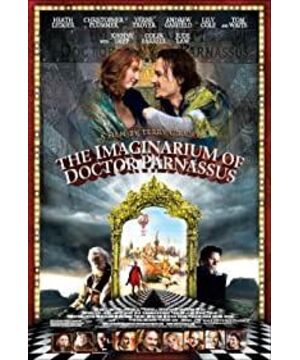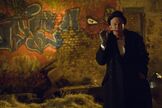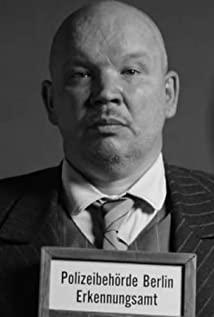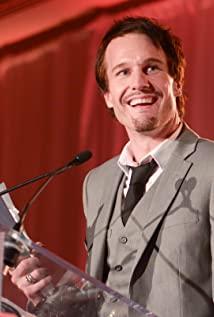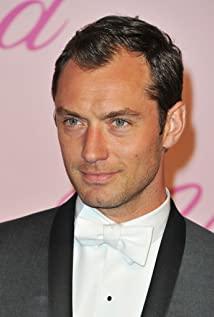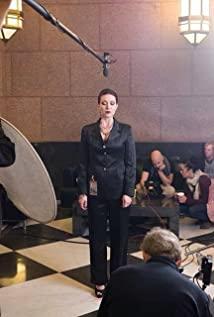Without the gimmick of Heath Ledger’s posthumous work, the new work "The Imaginarium of Doctor Parnassus" by the genius director Terry Gilliam )" is also a work that can be seen. The film continues Gilliam’s personal style, and has the most meaning of the past. Although the various components are still the same, the ideas are wild, the pictures are magnificent and colorful, the colors are bright and rich, the props are mysterious and interesting, the characters are outrageous, and the visual style is magnificent. It is colorful, but in every scattered spot, there are more beautiful branches. It can be called a bizarre and grotesque movie.
It is undeniable that the film has the narrative characteristics of Gilliam's films. Although the plot is simple, it is unstoppable and complicated, the overall structure is loose, the narrative is fragmented, the temperament is blurred, but the personality is strong, eclectic and self-contained. The plot has a strong mystery and fantasy color, and it also has a little sense of fate. Among them, Tony, played by Heath Ledger, is hung under the bridge as soon as he appears, and the shadow falling on the dark water will struggle to kick his legs. It evolved like dancing, reminiscent of Ledger's bizarre death in reality. This hanged posture, like a dance of death, seems a bit strange.
The storyline of the film's contract with the devil has the shadow of "Faust". This type of theme is not uncommon in the movie world, but the interesting part of the film lies in the contract with the devil (played by Tom Weitz). , Used to be a monk who lived in seclusion in the deep mountains (this setting is reminiscent of the dialogue between the Buddha and the devil). After making the first contract with the devil to obtain the immortal body, for thousands of years, for the subsequent breeding desire, Panatho Si made many bets with the devil, and the bets became more and more private. It was about life and death, about family affection, about lies, and about the truth.
The film gradually explores the relatively profound propositions of choice, gains and losses, and human desires. The value of the characters in the film also faces choices. For example, every time Tony enters the magic mirror, the choice he makes represents his values-the first time. His itinerary is relatively simple, but he is thoughtful; for the second time, he was bewitched by inspirational words and was busy climbing the ladder to "chasing fame and fortune". Although there are factors for fleeing his life, this paragraph shows his nature of chasing success. ; When Tony entered the magic mirror for the third time, he used lies to make his life a splendid chapter, and then he fled sharply. He faced the choice of life-saving flute, but this time, obviously God was not on his side. To get what he needed, he was calculated in partnership...
and the eminent monk also faced the choice of how to deal with the devil. After that, he continued to make choices for his desires. Finally, when he wandered in the desert in order to find his daughter, he was exhausted, and encountered a signpost. When lamenting "I don't want to choose anymore", the entanglement and pain in the meantime are beyond words. Gilliam seems to want to use this to show that life is faced with uninterrupted multiple-choice questions. If you have gains, you will lose. Whatever choices you make, you have to endure what kind of results. In the face of human life questions, no one can escape. .
As far as performance is concerned, due to the film's narrative method, unexpected accidents and many other factors, the main characters appear to be representational, as if they are part of a glimpse of light, Ledger’s Tony has not had time for him to personally analyze the soul of this person. Johnny Depp, who left unexpectedly and played just a few minutes later, showed with his acting skills that he is actually very suitable for interpreting the role of Tony. His Tony is endowed with internal qualities and psychological activities. Tony entered the magic mirror for the second time. Jude Law seems a bit too much, making the interpretation of the role suspected of being out of gear, and Colin Farrell's third time into the magic mirror, Tony, shows this person's hypocrisy, shameless, cunning and greed, but it is also more apparent. As for Dr. Parnassos, Christopher Plummer, who has a long resume in many famous films (such as "The Sound of Music"), has also tended to be ordinary in his performance this time, especially his inner life, which seems vague. In the film, Lolita and British supermodel Lily Cole, known as the fashion industry, are more like fulfilling a visual need than a role need.
In the film, the expressionism of Gilliam’s works is brought into full play. The virtual world in the magic mirror, the fantasy control given by the doctor, is actually the imagination and desire of human beings. It is the most desired thing in the heart, collecting five souls. The gambling agreement is like a manifestation of the annihilation of the soul by the expansion of human desire. The final ending, I don’t know if it was the script before the emergencies. Because of Ledger’s case, Gilliam rewrote the script specially. Looking at this ending, I find that Gilliam is still optimistic and hopeful about human nature. Under the circumstances, the individual tends to be pessimistic.
http://nicolew.blog.hexun.com/48109901_d.html
View more about The Imaginarium of Doctor Parnassus reviews


